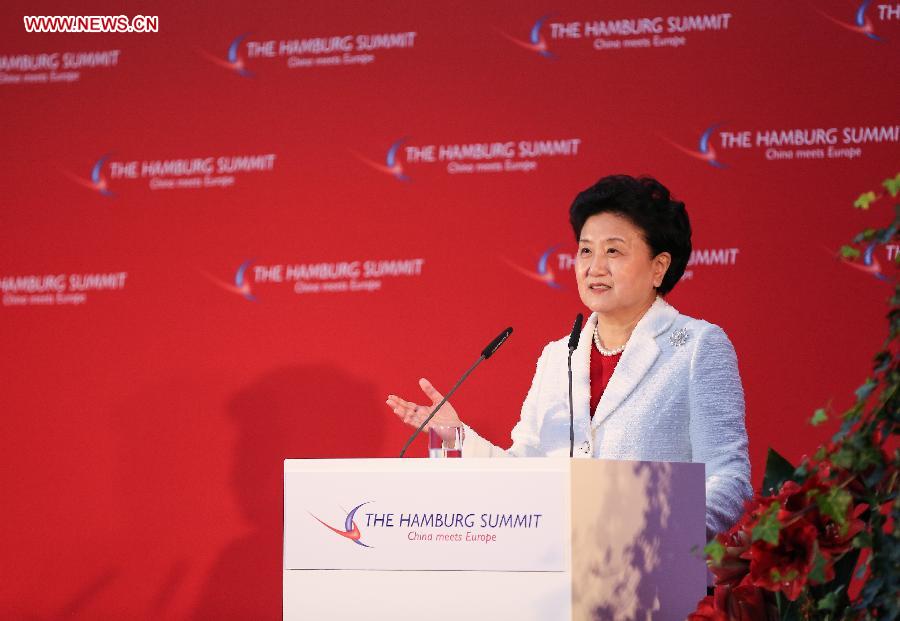China's vice premier has called for Europe to officially recognise the country as a market economy. It's become a more pressing topic at the China Meets Europe Summit in Hamburg, Germany as the continent ponders how the U.S. election result might impact its trade policies.

Chinese Vice Premier Liu Yandong delivers a keynote speech during the closing ceremony of the two-day Hamburg Summit "China Meets Europe" in Hamburg, Germany, Nov. 24, 2016. Initiated by the Hamburg Chamber of Commerce in 2004, the biennial summit serves as an important platform for discussing China-EU economic cooperation. (Xinhua/Shan Yuqi)
A warm welcome - for Hamburg's guest of honour. China's Vice Premier Liu Yandong came here to sell the virtues of the Chinese economy - and urge Europe to continue to take advantage.
"Maintaining free trade serves the fundamental interests of China and Europe. Protectionism will lead to a lose lose situation - it is not the right way out for the world economy. China hopes that the EU will implement article 15 granting China automatic accession to the World Trade Organisation. It hopes the EU will adhere to non-discriminatory principles," Liu said.
It may not be so clear cut. In the corridors and conference halls of the China Meets Europe Summit - delegates are still trying to digest how much the world may have changed since November 8th.
Europe faces a dilemma in the wake of the U.S. election result. On the one hand - some believe an American turn towards protectionism presses the economic case for building stronger trade ties with countries like China. Others argue quite the opposite: that with growing public scepticism about trade liberalisation generally - moving too quickly would be politically risky.
The latter seems to just about prevail here - at least for now. There's talk the European Commission may apply the breaks in talks over a comprehensive investment agreement with China.
"They believe these agreements don't protect the local production, they don't protect the employment. They want to change this - they want to be very cautious and go slowly on that. What I see, then, is that we'll have a 4 year extension to these kinds of talks," Vassilis Korkidis, chamber of commerce, Greek Port of Piraeus, said.
There is still broad support from both sides for a deal at some point.
"The bilateral investment agreement would cover liberalisation - and market access. But it would also cover investment protection as a classic investment treaty. So both sides would gain from that. And also - the kind of debates and discussions that we would have in these negotiations would also contribute to trust-building," Mikko Huotari with Mercator Institute for China Studies said.
There's a sense here that European policymakers may put re-gaining the trust of voters back home - ahead of furthering it with its partners abroad.















